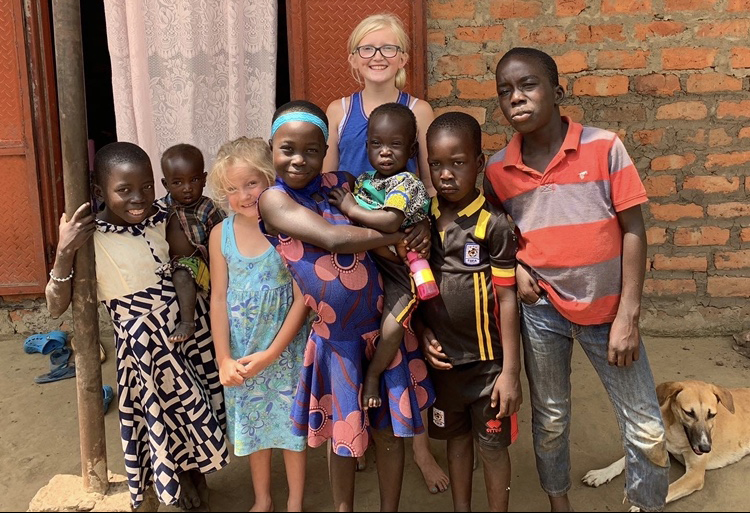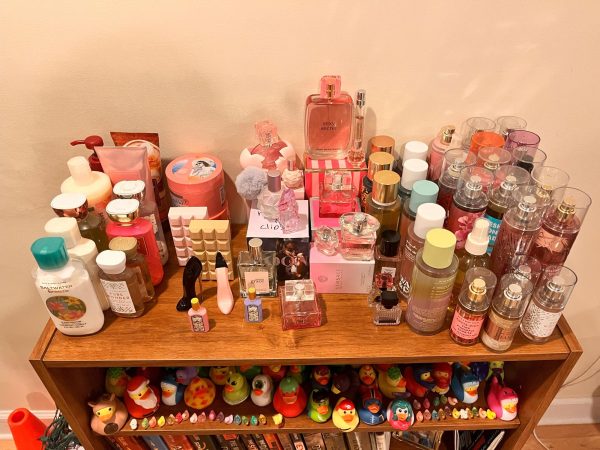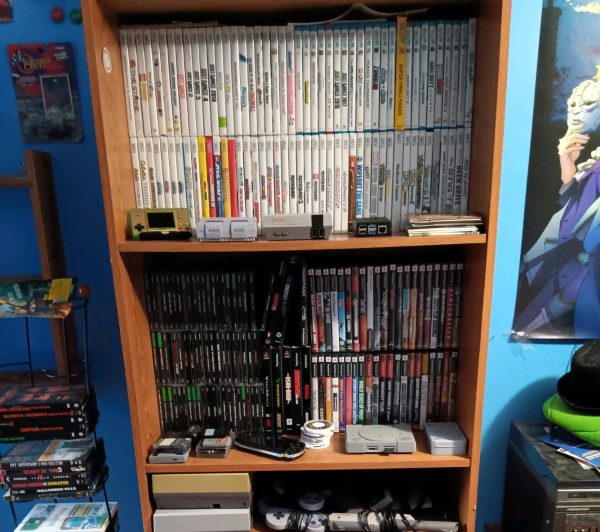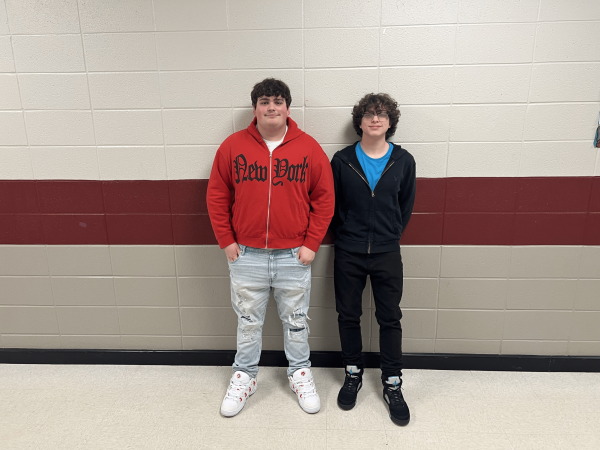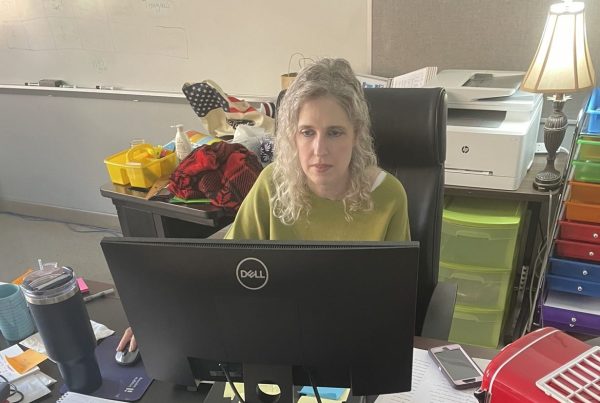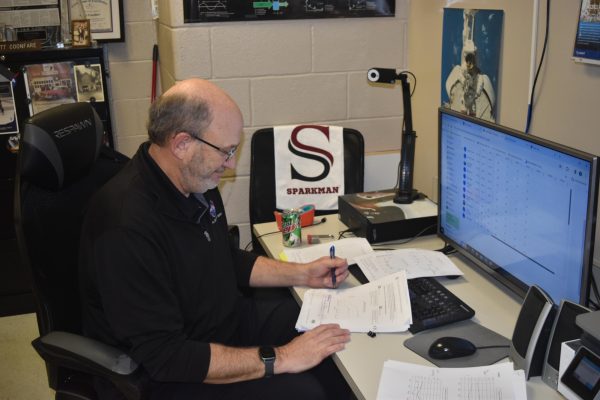Teachers Goes on Expedition to Africa
Photo Credit: Gina Glass
Lucy and Lena Glass, the children of history teacher Gina Glass, capture the memories of their new friends.
History teacher Gina Glass went on a 10-day expedition to Africa for the first time this past summer. Even while navigating the extra obstacles that COVID brought to international travel, they were able to have a memorable experience.
Glass went with her family to visit missionary friends and give her daughters a unique lifetime experience; however, navigating the airports and paperwork seemed to be an adventure of its own.
“We had to get yellow fever, tetanus, typhoid and COVID vaccines. We also had to take malaria meds,” Glass said. “We knew it would be the rainy season. We also knew that women have to wear long dresses or skirts. All of this played into how we packed.”
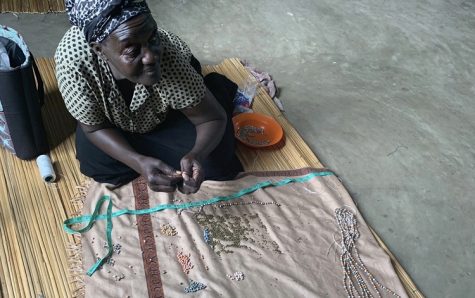
Traveling out of the country—especially now—requires thorough planning and preparation. Each country and every airport had a different set of rules. They had to be prepared to show documentation, including vaccine records at any given moment.
“Once we were in the country, we had to rent a tourist vehicle. At the moment, Uganda is not allowing any vehicle to carry more than five people unless it is a tourist vehicle,” Glass said. “At every city district, we were stopped by the military—they checked for masks—although none ever checked for vaccine documentation.”
Even though wearing masks became part of the global “new normal”, Glass had to adapt to Africa’s environment and culture. One of the more enjoyable aspects of another country is the food.
“The first thing we ate in Uganda was goat on a stick—chewy but pretty good. For dinner, we ate pretty typical American food, or as American as we could cook it,” Glass said. “We ate at an Ethiopian restaurant in town, which is the first time I tried injera (traditional flatbread). The typical Acholi food that we experienced was a whole chicken, rice, posho, porridge, beans, cabbage, noodles and a root known as cassava.”
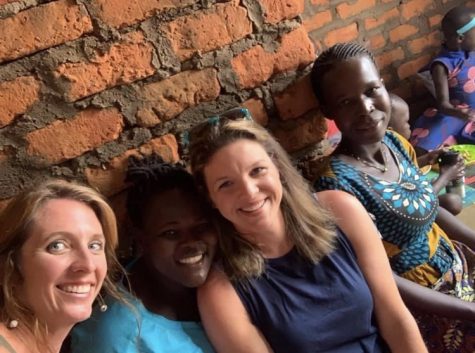
Along with the different food, there is a drastic change in the living conditions. They stayed on a compound with their friends who are missionaries with Abaana’s Hope. They provide jobs and support for the Acholi people.
“Abaana’s Hope is 150 acres about 30 minutes from the town of Gulu. The houses are brick with a well and solar panels,” Glass said. “As long as it was sunny, we had enough electricity and hot water for the day. Remember, it was rainy season, so sometimes the water was not very warm.”
“The first thing we ate in Uganda was goat on a stick—chewy but pretty good. For dinner, we ate pretty typical American food, or as American as we could cook it,” Glass said. “We ate at an Ethiopian restaurant in town, which is the first time I tried injera (traditional flatbread). The typical Acholi food that we experienced was a whole chicken, rice, posho, porridge, beans, cabbage, noodles and a root known as cassava.”
Regardless of the temperature, they were fortunate to have essential resources in close proximity since there is no electricity or running water outside of the compound until the nearest city.
“The compound had a well that was dug deep enough where no bacteria could grow. This was the only area we could drink the water,” Glass said. “It was sad to see everyone walking to the nearest borehole/well to get clean water, but it was good to see that most of the villagers had a place they could go to get water.”
There are three missionary families on the compound. Each family is in charge of a certain aspect. Their friends, Jessica and David Hagins, are in charge of the childcare development program. Abaana’s Hope is a part of Four Corners Ministries, which is based in Opelika, AL.
“Abana’s Hope is located in the heart of where Joseph Koney and the Lord Resistance Army tried to wipe out the Acholi people,” Glass said. “Abana’s Hope employs over 100 Acholi people as teachers, pastors, life-bead jewelry makers, farmers, security guards, kitchen workers and social workers.”
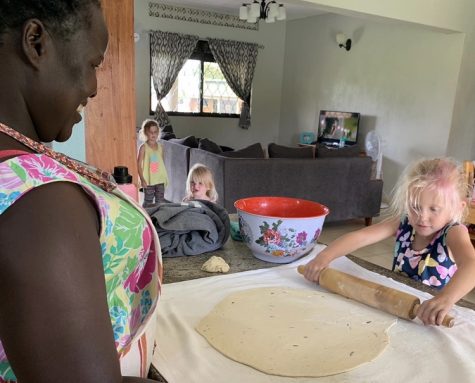
Not only did they get to walk the village and meet with the Acholi people, but they were also able to take a few days to go on an animal safari at Murchison Falls national park. Glass feels they accomplished their mission of giving their daughters an adventure to remember.
“We went to take the girls for a cultural lifetime experience. The most memorable or best thing to see was our two young girls interacting with the Acholi,” Glass said. “We sponsor a child through the childcare program. We were able to buy rice, chicken and beans for the family. They cooked it for us and we were able to have lunch with them. It was amazing.”


